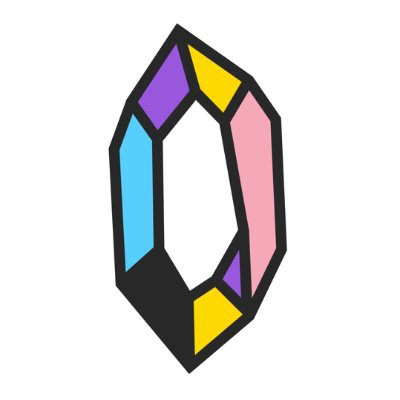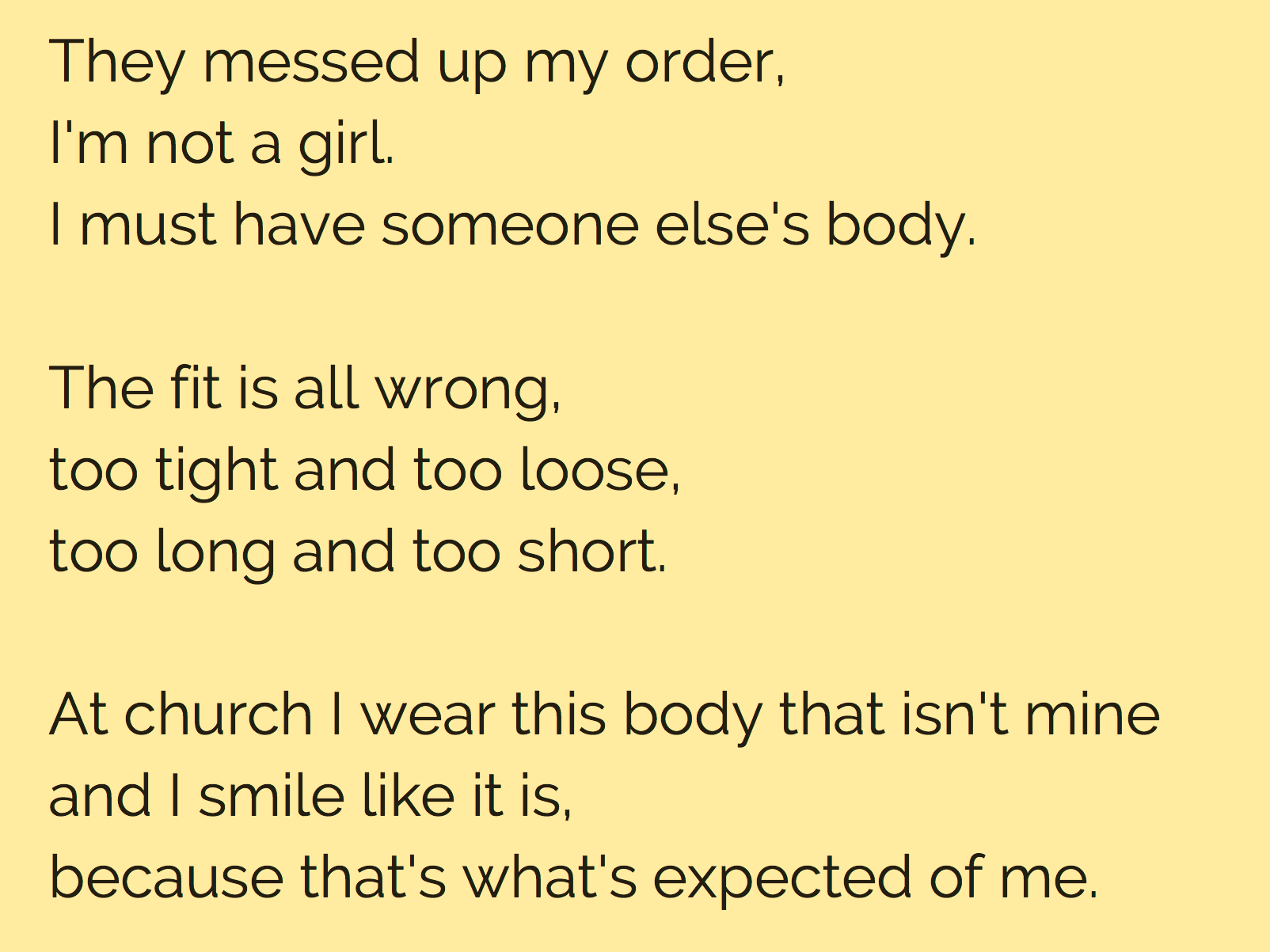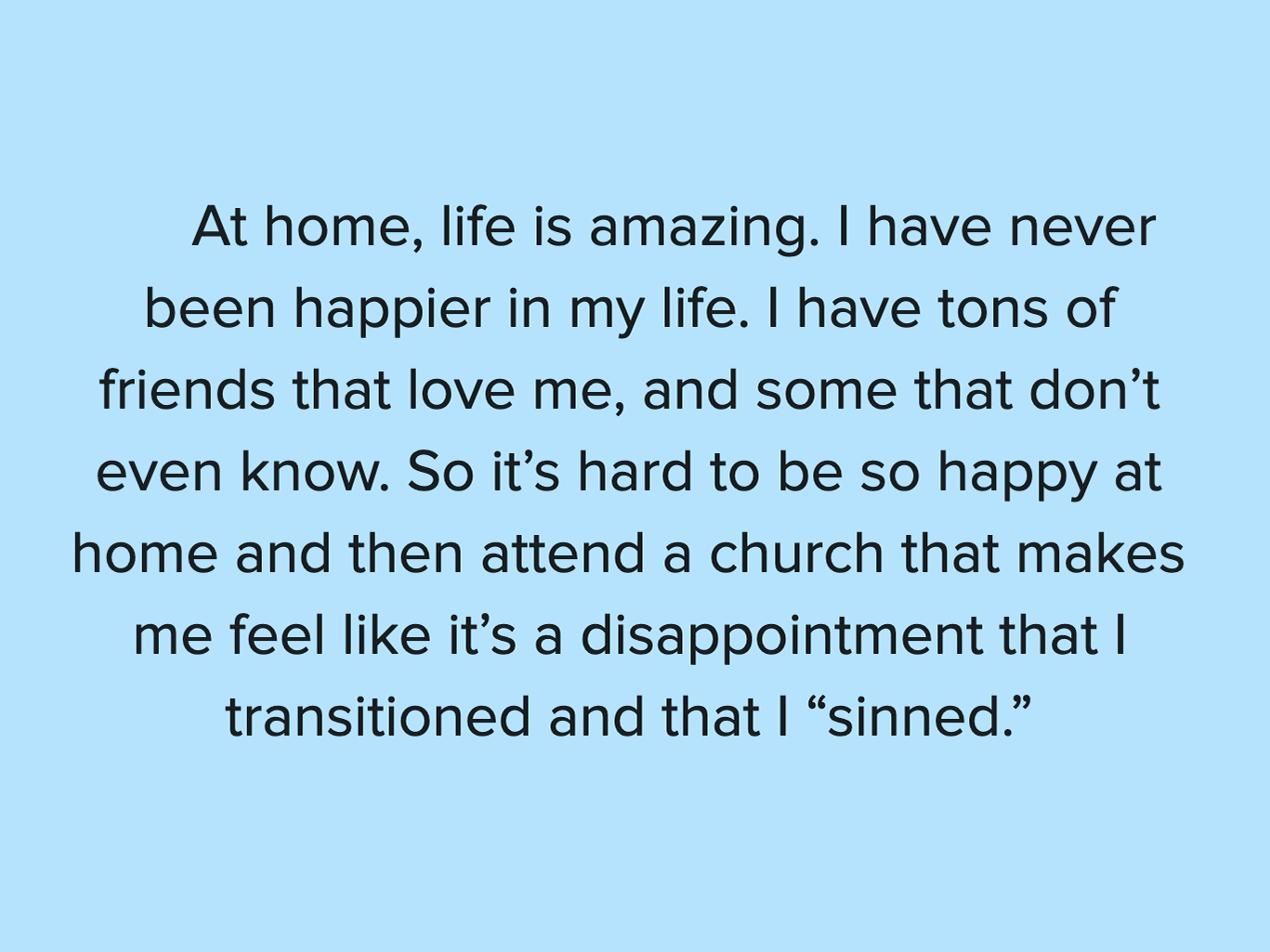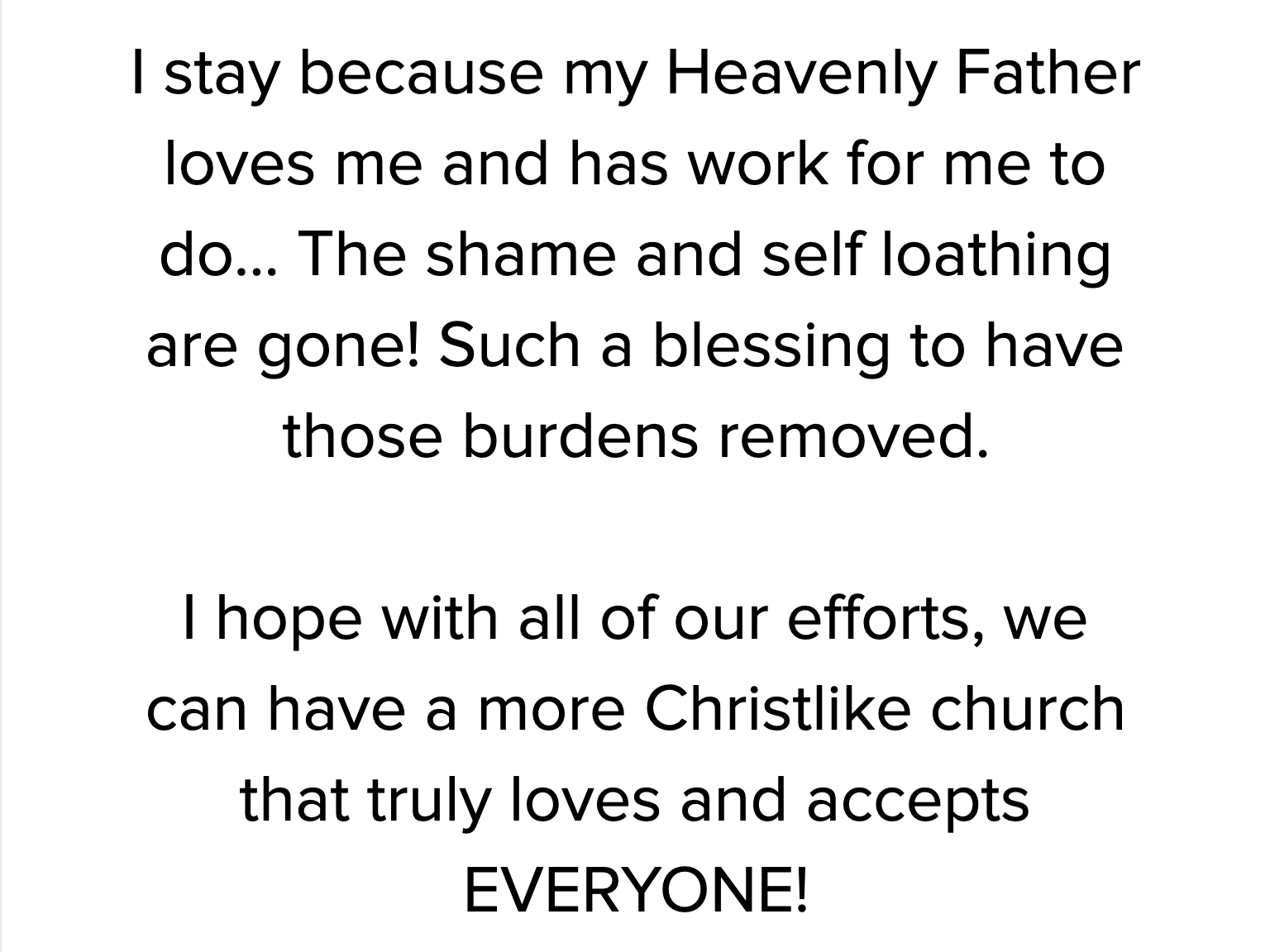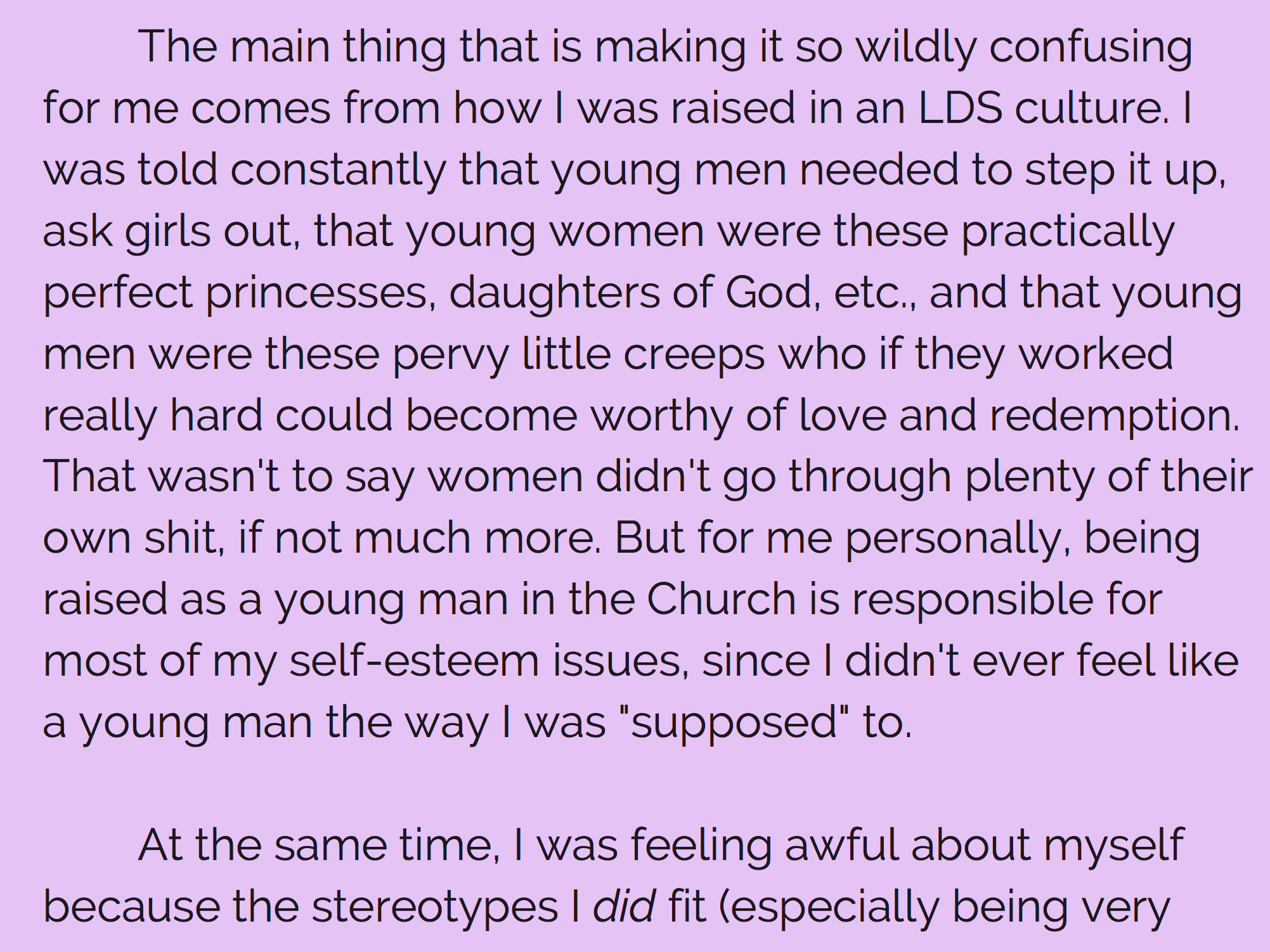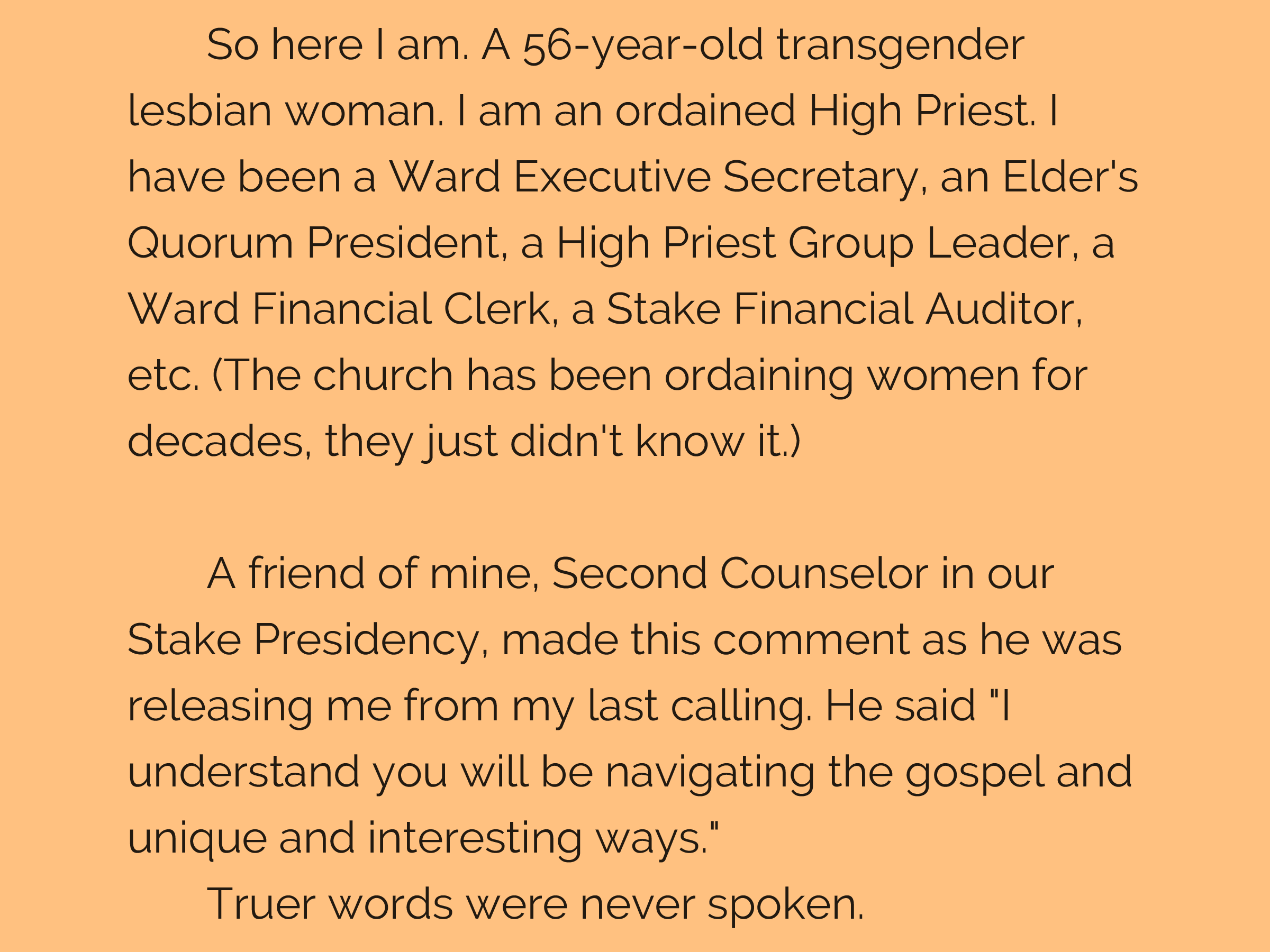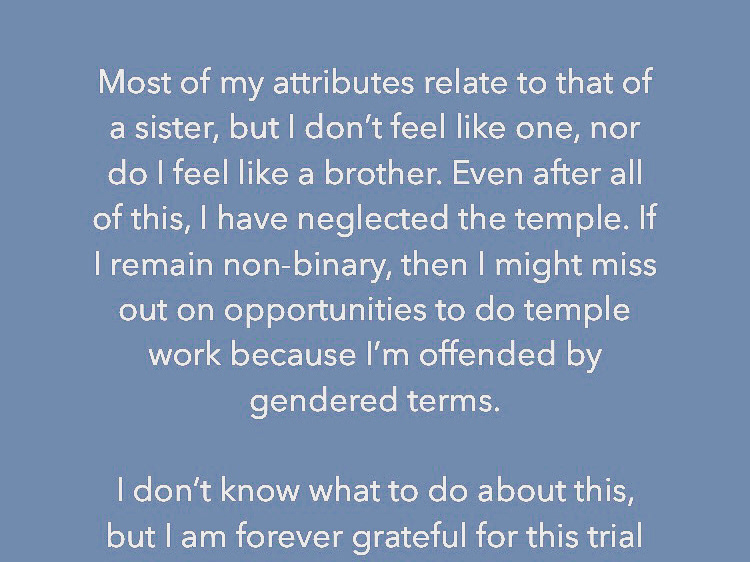When I was young enough to play pretend, I would refuse to play if I couldn’t be a male character— the dad, the warlock, the king. I beamed with pride when, in middle school, I was cast as the male lead in two plays. I remember vividly an incident wherein someone asked me a question that began, “If you could be king for a day…” He quickly backtracked and changed it to “queen,” but I felt a rush of confidence and pointedly answered, “If I could be king for a day…” and I’ve used the nickname King since then.
That said, I am not a guy. But, also, I’m definitely not a woman. Most of the time, I forget that gender is a part of who I am. I spent considerable effort performing girlhood and young womanhood before realizing that neither of those were truly me. I consciously worked toward those identities— not because I wanted to, or felt intrinsically drawn to them, but because I knew that it was expected of me, and I hadn’t yet learned that it was okay to break away from those expectations. Additionally, it wasn’t until college that I found out that many others did feel gender intrinsically. Before, I thought everyone put as much effort into assuming a gendered persona as I did.
Because I spent so long trying to fit into the “cis woman” box, words and expectations associated with womanhood call me back to that struggle. Now that I have discovered myself outside of the binary, being corralled back into my assigned gender causes me to recall— with varying levels of discomfort— the experience of silencing my true self to conform to the identity I was told I had to exhibit. If done intentionally, this feels aggressive, but even when unintentional, it feels… bad, in a way that is very difficult to describe.
Being a nonbinary Mormon is particularly difficult. I don’t feel like I can tell anyone at church or in my family, so I live with near-constant discomfort knowing everyone perceives me as someone I am not. As a Relief Society teacher, I often have to bend over backwards to avoid outing myself by saying things like, “As women in the church, you…” instead of “As women in the church, we…” Same goes for my response when ward members use gendered nouns to refer to me. It is particularly uncomfortable in this community because the church places so much emphasis on gender roles; especially for female-bodied persons who, according to church leaders, are naturally more caring, empathetic, friendly, etc., and whose responsibility and greatest joy lies in having children (I am none of these things, naturally, and do not want kids). And this on top of the discomfort and othering associated with being asexual and panromantic in the church.
It’s also difficult because the people who I have told don’t understand what being nonbinary means. I have often thought I was a bad example of a nonbinary person because I don’t use neutral pronouns (in person), I can’t make myself look androgynous, and, as trivial as it sounds, because I enjoy having long hair. Of the few people I have told, I’m sure most (if not all) believe that I am just a girl who doesn’t like stereotypes. And I know that there is a learning curve associated with this, and that they will understand more as I talk more about it— but also, sometimes I get so tired of explaining (defending) my gender when it seems most of the population gets to take theirs for granted.
